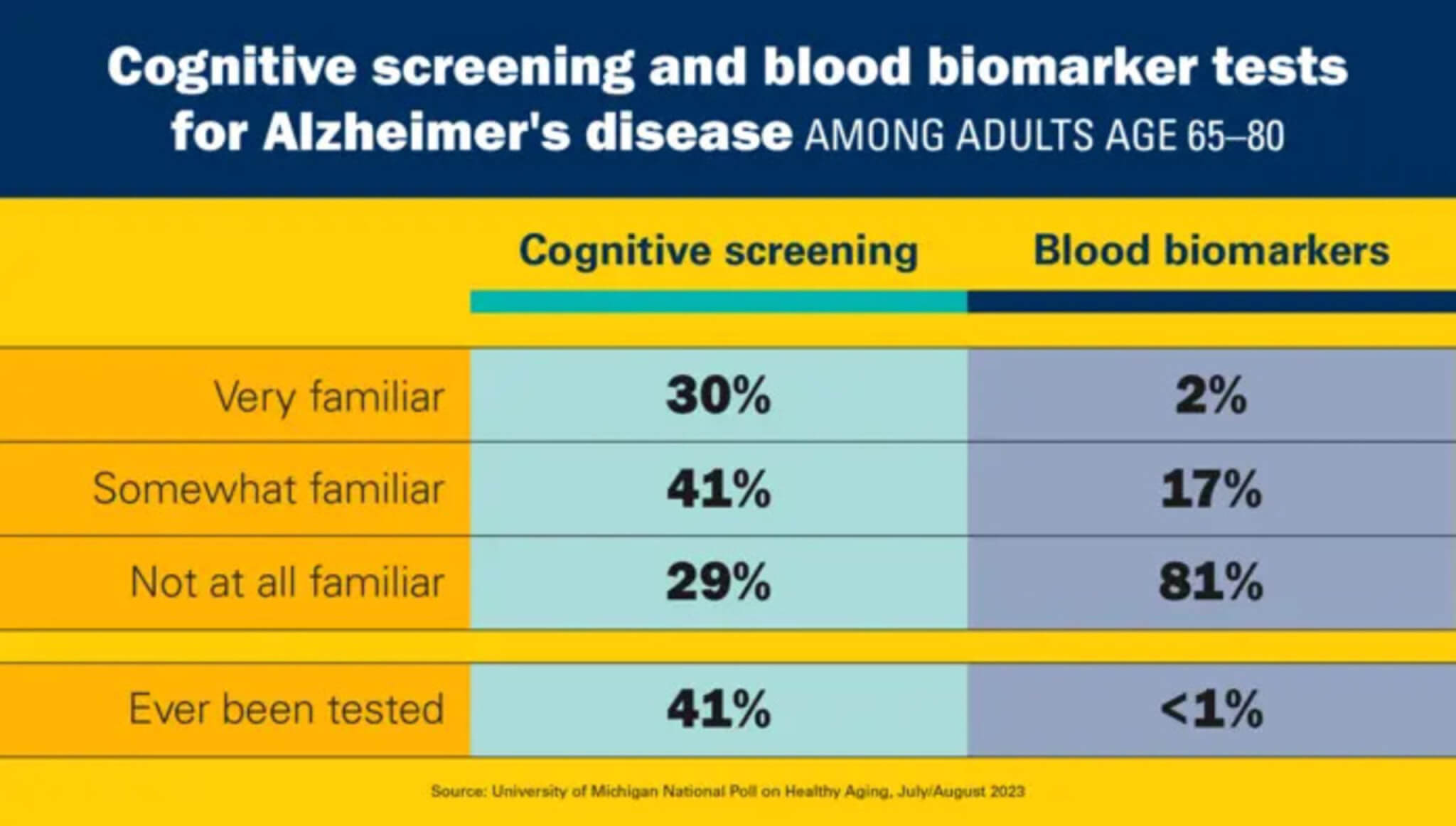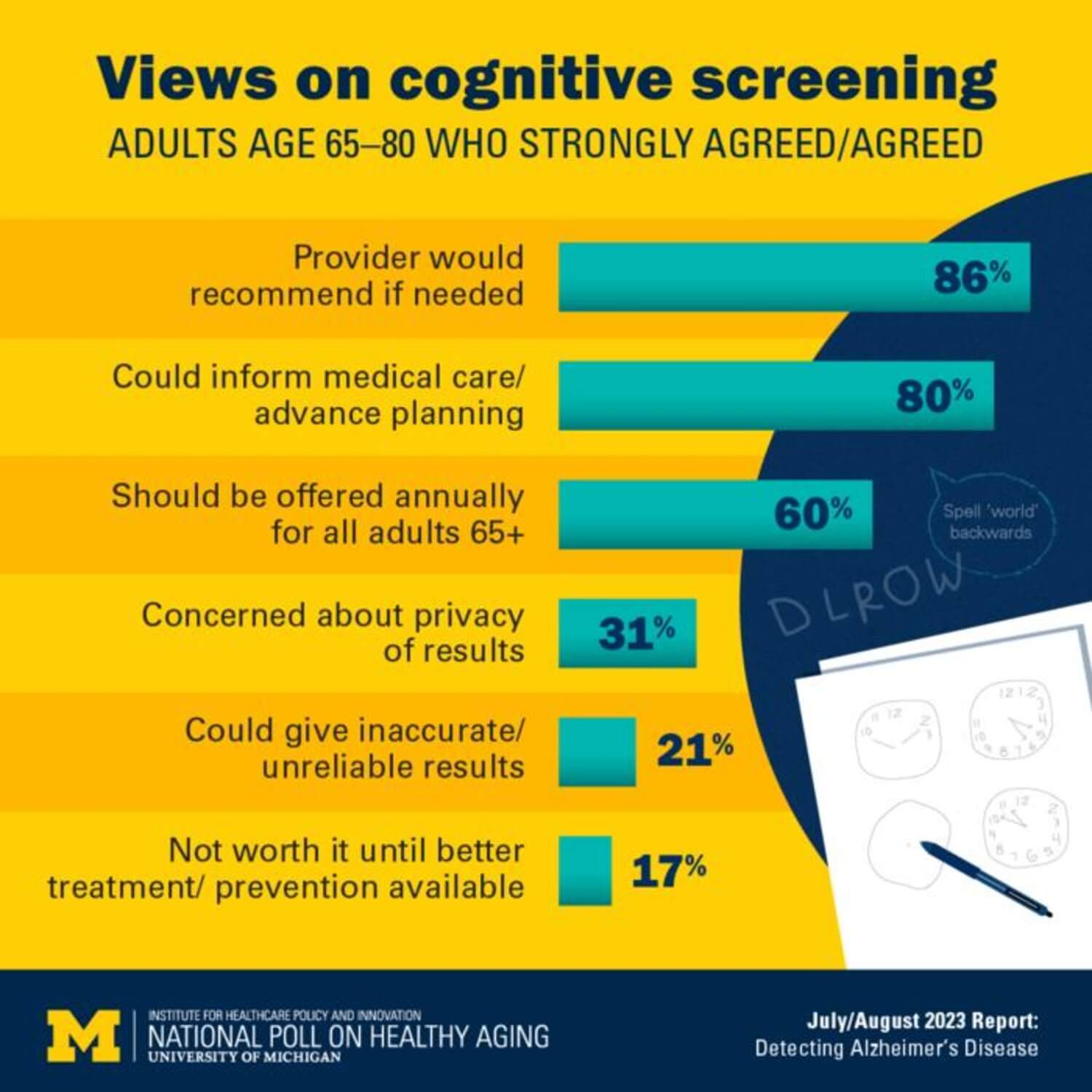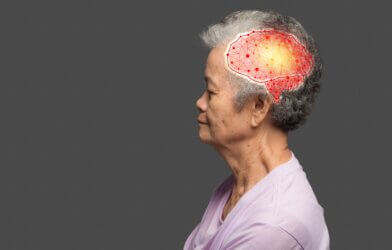To help detect early signs of Alzheimer’s, medical professionals offer cognitive screening tests and even blood tests for the disease’s biomarkers. However, many older adults fail to take advantage of these tests.
In a recent poll of individuals aged 65 to 80, 80 percent of respondents acknowledged the benefits of tests that can provide early warnings about declining memory and cognitive abilities. Additionally, 60 percent believe that healthcare providers should offer these cognitive screenings to older adults annually.
Despite this, the study revealed that 80 percent haven’t undergone such a cognitive test in the last year to identify early indicators of Alzheimer’s or other dementia forms. Furthermore, 59 percent say they have never been screened for these issues. This is surprising, especially since Medicare covers such tests as part of an annual wellness visit.

“As many as half of Americans with Alzheimer’s disease or another form of dementia don’t receive a formal diagnosis, even when they have clear symptoms,” says Dr. J. Scott Roberts, the associate director of the poll and professor at the University of Michigan School of Public Health, in a media release. “As more diagnostic and treatment options become available, it’s important to understand how older adults view them and how best to support those who undergo testing and receive results.”
The study delved into the participants’ knowledge about blood tests that detect Alzheimer’s by identifying brain proteins tau and amyloid. Only 17 percent were familiar with these tests, less than 1 percent had undergone one, and 9 percent expressed interest in having one now. Interestingly, 50 percent believe such tests should be available to all adults above 65.
On the heels of Medicare unveiling its coverage plan for FDA-approved drugs that might decelerate cognitive decline in early Alzheimer’s patients, this study also highlights the potential of blood pressure management, physical activity, and social interaction in reducing cognitive decline risk in the elderly.
Researchers stressed the crucial role of medical professionals in detecting early signs of cognitive issues.
“Our findings suggest that more than 80 percent of older adults look to their health care providers for cognitive screening or blood biomarker testing if they feel it’s appropriate,” says poll director Dr. Jeffrey Kullgren, an associate professor of internal medicine at Michigan Medicine and physician and researcher at the VA Ann Arbor Healthcare System. “That expectation, coupled with the growing availability of options after diagnosis of cognitive impairment, supports the current recommendation that providers should be assessing patients at higher risk or with signs of cognitive decline.”
The data also revealed gender and ethnic disparities in testing responses. Women are more likely than men to be significantly distressed by positive test results for early dementia signs. Additionally, only 10 percent of Hispanic older adults reported undergoing cognitive screening in the past year, compared to 22 percent of non-Hispanic white and 21 percent of non-Hispanic Black respondents.

University of Michigan)
Sarah Lenz Lock, senior vice president of Policy and Brain Health at AARP and executive director of the Global Council on Brain Health, emphasized that everyone should have access to cognitive tests as they age.
“The bottom line is that if we want to improve brain health for all, we have to pay attention to the needs of those at greatest risk of poor health and address barriers that stand in the way,” notes Lock.
The findings were based on a survey conducted by NORC at the University of Chicago, encompassing 1,242 adults aged 65 to 80. The sample was weighted to represent the U.S. population.
The study was presented at the 2023 Alzheimer’s Association International Conference in Amsterdam.












